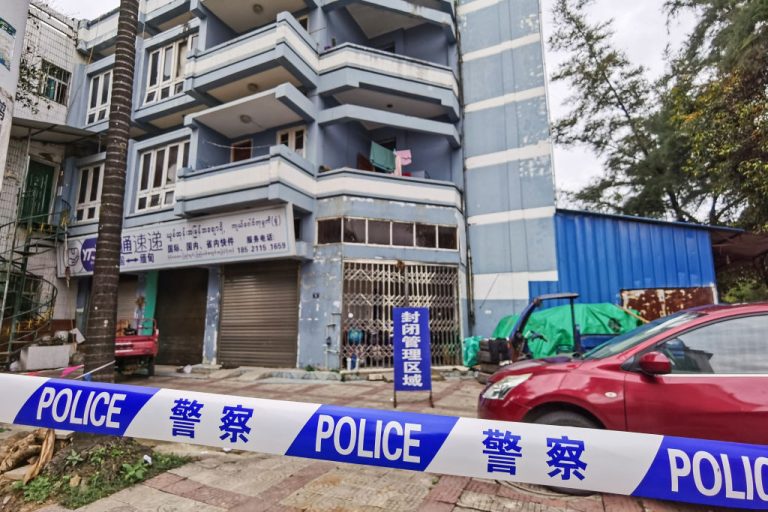Ruili, a county-level city of Dehong Prefecture in the west of Yunnan province, China — a major border crossing neighboring Myanmar — has been locked down and subjected to multiple mass nucleic acid testing events and other drastic measures, as the Chinese Communist Party (CCP) scrambles to prevent a further surge in Coronavirus Disease 2019 (COVID-19) infections.
At midnight on July 6, the city of Ruili, after reporting 15 new confirmed cases of locally transmitted COVID-19 and two locally-transmitted asymptomatic cases, issued a stay-at-home order for approximately 270,000 people and suspended operations for most businesses in the city, reported China Daily.
Over the past week, Ruili discovered an additional 155 cases of the virus in one of the worst surges in COVID-19 infections to hit the province of Yunnan in recent months, reported Xinhua. In response to the surge, Chinese authorities took drastic measures to contain the outbreak.
Facial recognition software deployed
Facial recognition technology, linked to personal health codes, has been deployed in Ruili as local authorities combat the recent outbreak. “Security tools such as facial recognition cameras, smart door locks and road barriers (run by police or community volunteers) have been put in place in key areas,” local authorities said in a statement.
The system is being monitored by the city’s pandemic prevention task force with scanners checking the temperatures of individuals. This is perhaps the first publicly reported use of facial recognition software that tracks a person’s movements and health status as they move around their community through supermarkets, transport hubs, and other public spaces.
Success
You are now signed up for our newsletter
Success
Check your email to complete sign up
While China’s “zero risk” approach to combating clusters of COVID-19 infections has been effective, the privacy of private citizens has been compromised. Local officials are subjecting everyone entering or exiting Ruili to a facial scan to check for signs of infection.
China may be the most surveilled society on earth. Over the past five years, Chinese authorities installed an estimated 200 million CCTV cameras, covering nearly all public spaces and raising numerous privacy concerns.
Border fence with Myanmar
China is in the process of erecting a barbed-wire fence six to nine feet high that stretches hundreds of kilometers along the China-Myanmar border. The project has largely been seen as an effort to combat the COVID-19 pandemic, but Chinese officials have not issued a statement clarifying the reason for the fencing.
Since the military coup in Myanmar on February 1, Chinese officials have been concerned about a potential flood of people coming over the border to escape the violence and unrest, bringing cases of COVID-19 with them.
According to worldmeter.com, there are an estimated 212,545 cases of COVID-19 in the embattled country, with 4,346 recorded deaths as of July 15. The land border between China and Myanmar is 2,227 kilometers long, but Chinese authorities are prioritizing heavily populated places such as the border cities of Ruili and the Myanmar city of Muse.
“While media reports in China say the boundary fence has helped prevent illegal crossings and by extension COVID-19 outbreaks, the RFA report said it could also keep Chinese dissidents from fleeing the country.” reported Newsweek.
Ethnic minority groups, whose traditional homelands are on both sides of the border, are said to be utilizing lesser-known paths through the mountainous region to cross into Myanmar.
In addition to preventing an increase in COVID-19 cases, “the CCP is also worried that a roaring arms trade linked to ongoing ethnic armed conflict in Myanmar mean[ing] that weapons are finding their way across the border, and into the hands of Chinese citizens.” reported Radio Free Asia.














